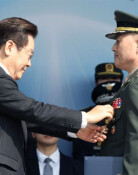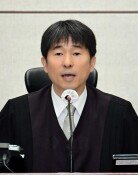[Editorial] Presidential Transition Committee Should Respect Opinions of Ministries
[Editorial] Presidential Transition Committee Should Respect Opinions of Ministries
Posted January. 10, 2003 22:43,
A couple of days ago, a member of the Presidential Transition Committee stormed out in the middle of Labor Ministry officials` briefing. This event symbolizes the statuses of the committee and the incumbent administration. The committee member flatly complained, "Listening to your report, I see many differences from what [President-elect] Mr. Roh has pledged. It is the ministry that should make adjustments." Without deeming the committee sitting above the government agencies, he could not have made such remarks.
By no means, the committee can be understood as higher than the government agencies in terms of chain of command. As indicated literally by its name, the committee is a temporary organization set up to facilitate an incoming administration`s taking over by comprehending what`s going on in advance. Strictly speaking, the current administration has no legal obligation what so ever to report and suggest to the committee. It just has to help it.
Ministry of Labor believes, under the current conditions of the labor market, it is hard to realize Mr. Roh`s pledge that people having the same occupation shall be paid the same. If that is true, the committee should listen and respect the opinion of the government agency having the proper jurisdiction. Then, after consulting various interest groups, it should make policy suggestions to Mr. Roh. That`s all the committee members have to do. It is in sound discretion of the new administration to decide whether to maintain the pledge or replace it with another project. Furthermore, it is Congress that should determine whether to enact or revise relevant laws.
Understandable in the same context is the opposition of the Justice Ministry to the reform bill proposed by the transition committee. As in most cases, the reform plan has a dark side as well as a bright one. Of course, positive effects will be brought about by establishment of a special division investigating bribery and malfeasance cases, and permanent appointment of a special counsel. Nonetheless, these two institutions will have overlapping functions and compromise the status of the prosecution. The committee just has to ponder over two alternatives in an objective way. It is not desirable at all to make decisions black and white.
It is not desirable either for some ministries to make efforts to cater to the committee. Mr. Roh should understand those efforts might backfire and throw heavy burdens on him when he takes office. Sincerely hope that the committee should not cross the line again in the future.



![쓸개 파열로 “사흘 남았다” 판정받은 시인…18년뒤 “너를 아껴라” 속삭여[손효림의 베스트셀러 레시피]](https://dimg.donga.com/c/138/175/90/1/wps/NEWS/IMAGE/2026/01/08/133113134.1.jpg)



